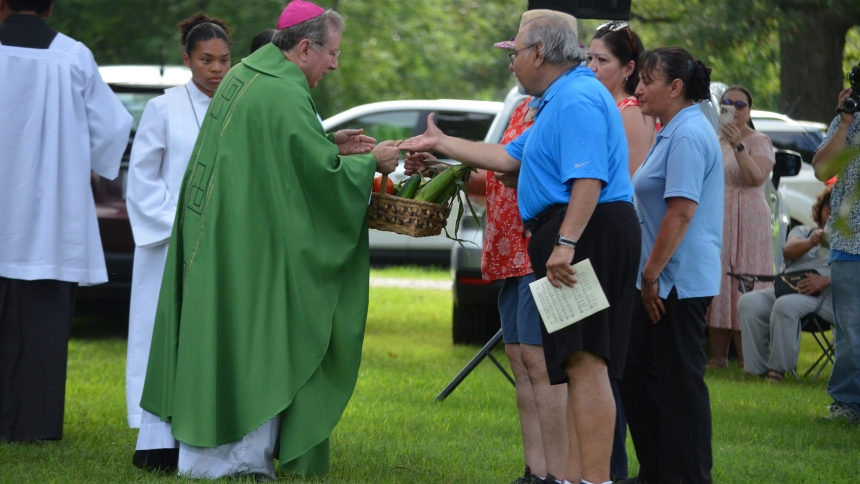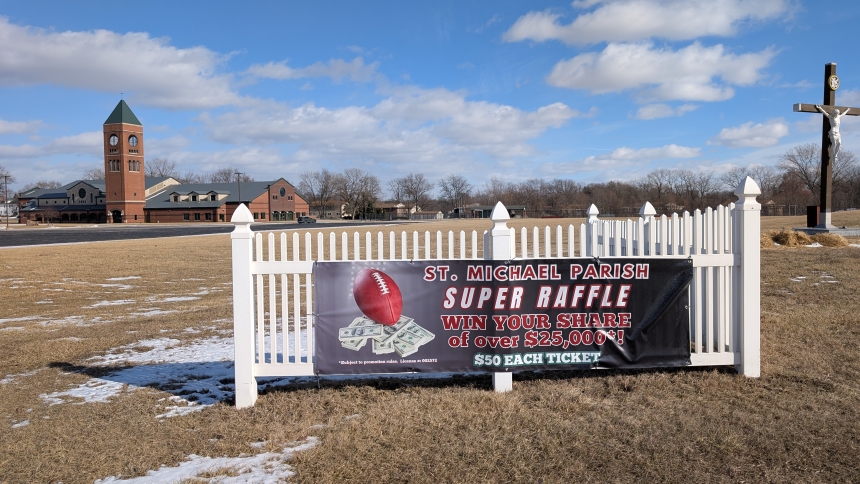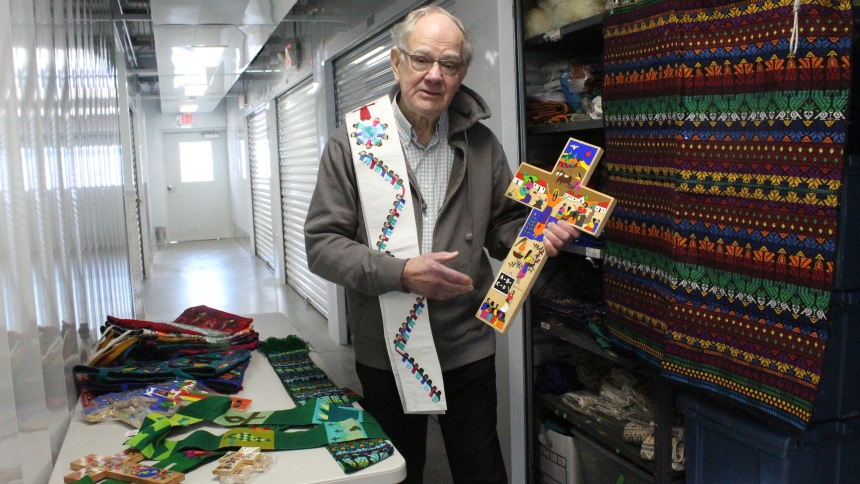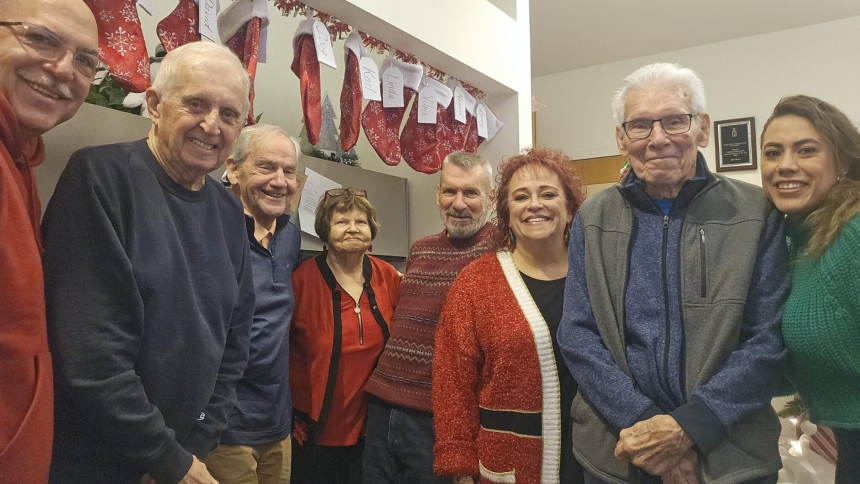
“Although you are experiencing understandable fear and uncertainty, remember that we have an awesome God who understands our suffering.”
That is the message Bishop Robert J. McClory and the leadership of the Diocese of Gary wish to share with those who face hardships and uncertainty amid the escalation of immigration policy enforcement and reports of an increase in detentions, arrests and deportations of individuals within Northwest Indiana.
“All of our parishes are holding you in prayer,” said Bishop McClory. “You are not alone. The Church walks with you.”
The bishop said it is not easy to navigate the current situation. He acknowledged that a nation has the right to enforce its borders, and individuals and families have a right to migrate in pursuit of a better life.
“We also have the responsibility to treat our brothers and sisters with their God-given dignity in all circumstances,” he said.
Bishop McClory went on to say that it is important to acknowledge that there are people who are living in a chronic state of fear and anxiety due to what is happening in our local communities and neighborhoods. He stated the suffering of migrants is not merely political, but profoundly human and spiritual.
Dr. Claudia Sadowski, coordinator of intercultural ministry, said she has witnessed a deep sense of vulnerability and fear in many families. Even those who have been here for many years, or who have mixed-status households, are feeling extreme anxiety.
“Parents are worried about stability, their children’s future, and whether they will remain together as a family,” she said. “I have also heard a lot of exhaustion, emotional and spiritual, because so many feel that they are constantly fighting to ‘prove’ dignity, humanity, and belonging.” She added that many Hispanic U.S. citizens feel they are at risk as well.
At the same time, Sadowski sees incredible resilience, a deep trust in God, and a sense of communal solidarity.
“People continue to serve, pray, and love their neighbors, even in moments of fear,” she said, noting that it is encouraging to see the outpouring of support from non-Hispanic brothers and sisters.
Bishop McClory explained that the Catholic response to immigration policy enforcement is rooted in the Gospel and the U.S. bishops’ framework Forming Consciences for Faithful Citizenship. He affirmed the bishops of the United States' stance that the Hispanic Latino presence among the faithful is a blessing.
“Hispanic Latino Catholics are a blessing from God for our Church and our country,” he said. “Our local Church must remain a beacon of hope in this moment.”
Bishop McClory echoed the prophetic witness of Pope Leo XIV and Pope Francis, who reminded all that to love Christ is to love those who suffer. Pope Leo said that “the role of the Church is to preach the Gospel,” and highlighted St. Matthew’s Gospel account of the Last Judgement: “Jesus says very clearly: At the end of the world, we're going to be asked, how did you receive the foreigner? Did you receive him, and welcome him, or not?”
Pope Leo XIV’s Dilexi Te, the bishop added, reminds everyone that Christ is present in the migrant, and that every person possesses an inviolable dignity.
In his February letter to U.S. bishops, Pope Francis emphasized that “Jesus Christ, loving everyone with a universal love, educates us in the permanent recognition of the dignity of every human being, without exception,” while also acknowledging that “one must recognize the right of a nation to defend itself and keep communities safe from those who have committed violent or serious crimes, while in country or prior to arrival.”
Bishop McClory noted that in some parishes, families are exercising extreme caution, which is impacting their ability to worship and educate their children. If individuals have questions about their ability to safely attend Sunday Mass, they should consult their parish priest for possible dispensation from the Sunday obligation. Information on maintaining divine law to keep the Sabbath day holy can be found in the diocesan directory, on the diocesan website (dcgary.org) and on the USCCB website (usccb.org).
“Many things are out of our control,” said the bishop. “Meaningful immigration reform will take time. We need to improve the pathway to legal immigration. For now, we must focus on what we can do in support of those in need.”
Parishes within the diocese continue to provide personal outreach through small group prayer communities, home visits and digital ministry. As they are able, parishes offer pastoral support, connecting families with trusted resources and accompanying them spiritually. The Diocese of Gary website includes a list of trusted resources on a page dedicated to caring for migrants.
“We encourage families to stay informed only with trusted sources,” Sadowski said. “And we pray together for the peace that Christ promises, not as the world gives.”
The diocese also has existing ministries that tend to the needs of the poor and vulnerable within the communities. In some areas, these ministries are being overwhelmed by local needs.
“We, as the Church, need to pull together to give material support to these ministries,” Bishop McClory said.
For more information on how you can help, visit dcgary.org.



